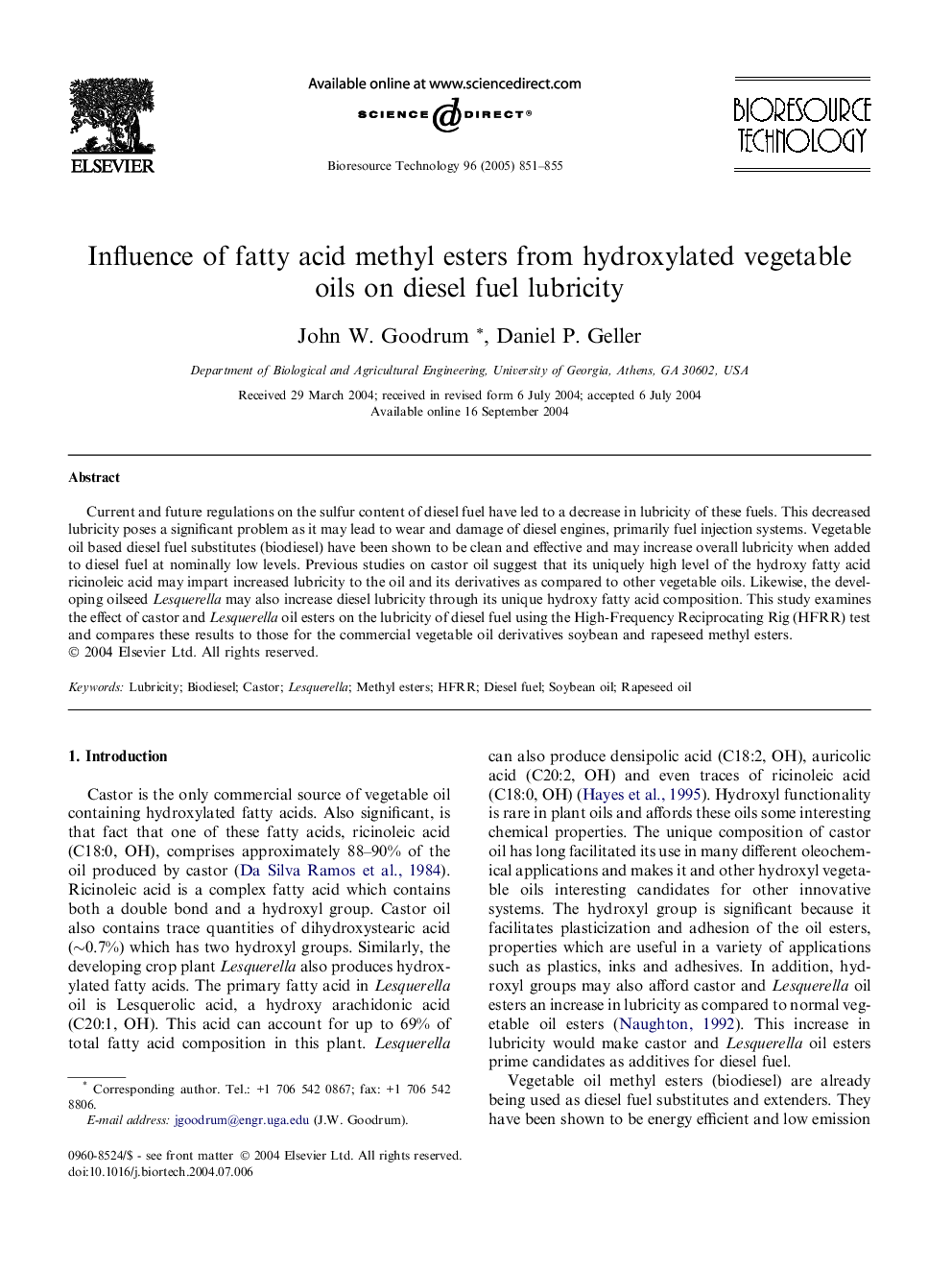| Article ID | Journal | Published Year | Pages | File Type |
|---|---|---|---|---|
| 10395838 | Bioresource Technology | 2005 | 5 Pages |
Abstract
Current and future regulations on the sulfur content of diesel fuel have led to a decrease in lubricity of these fuels. This decreased lubricity poses a significant problem as it may lead to wear and damage of diesel engines, primarily fuel injection systems. Vegetable oil based diesel fuel substitutes (biodiesel) have been shown to be clean and effective and may increase overall lubricity when added to diesel fuel at nominally low levels. Previous studies on castor oil suggest that its uniquely high level of the hydroxy fatty acid ricinoleic acid may impart increased lubricity to the oil and its derivatives as compared to other vegetable oils. Likewise, the developing oilseed Lesquerella may also increase diesel lubricity through its unique hydroxy fatty acid composition. This study examines the effect of castor and Lesquerella oil esters on the lubricity of diesel fuel using the High-Frequency Reciprocating Rig (HFRR) test and compares these results to those for the commercial vegetable oil derivatives soybean and rapeseed methyl esters.
Related Topics
Physical Sciences and Engineering
Chemical Engineering
Process Chemistry and Technology
Authors
John W. Goodrum, Daniel P. Geller,
